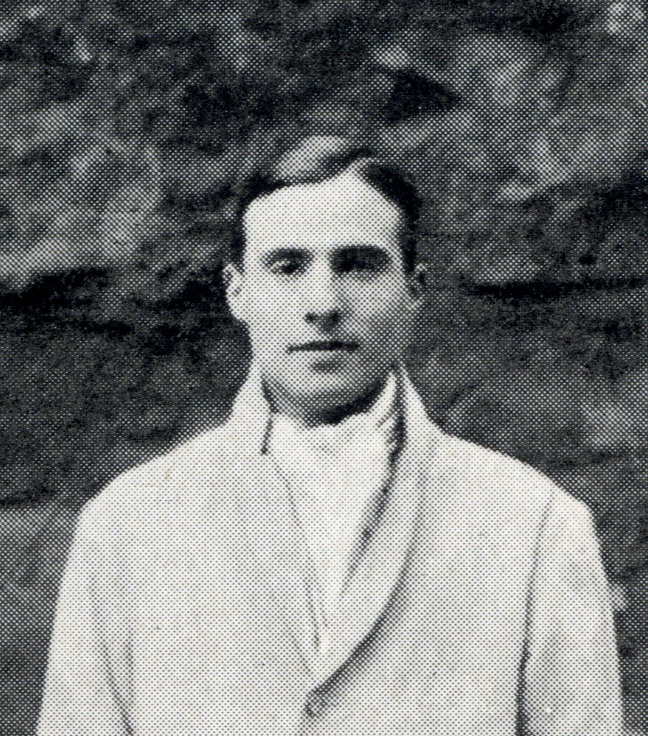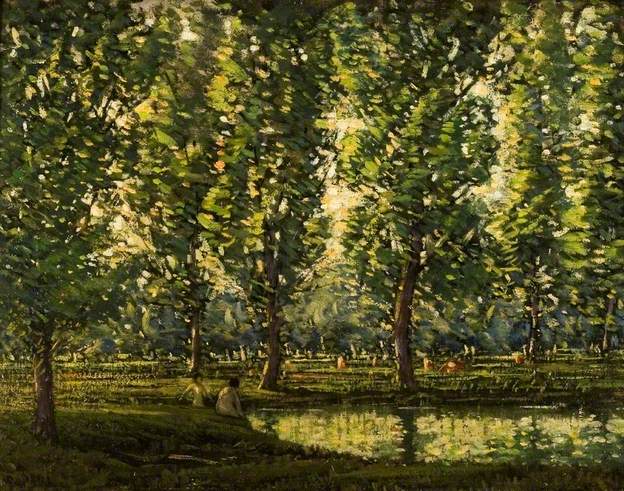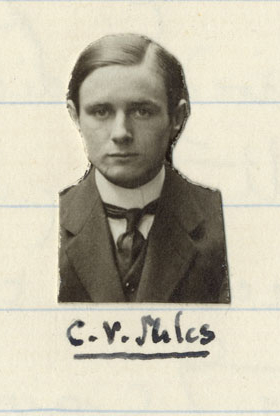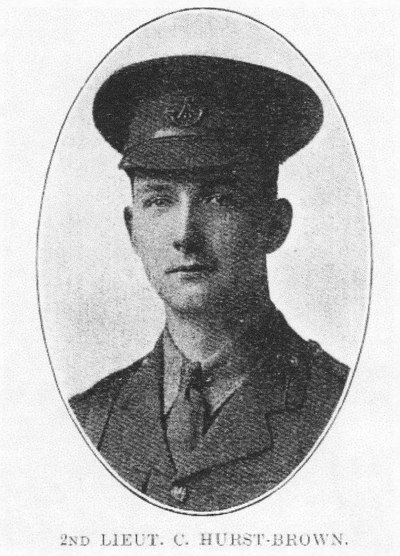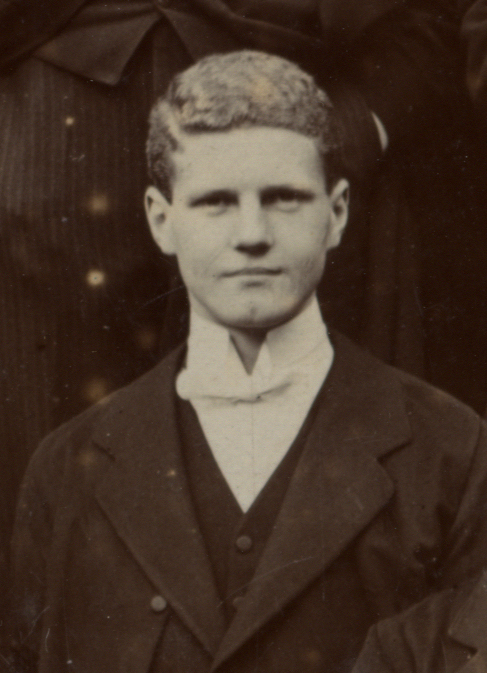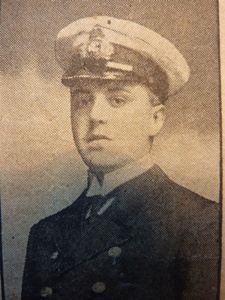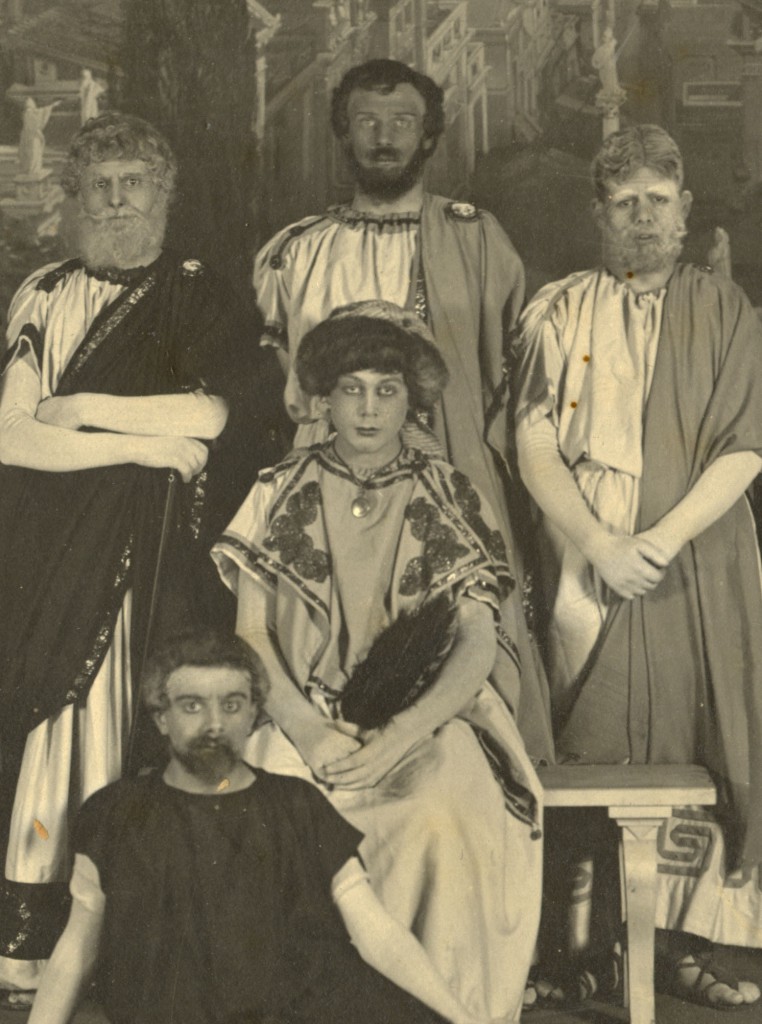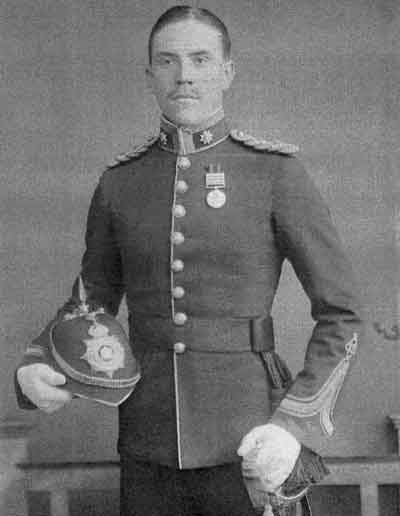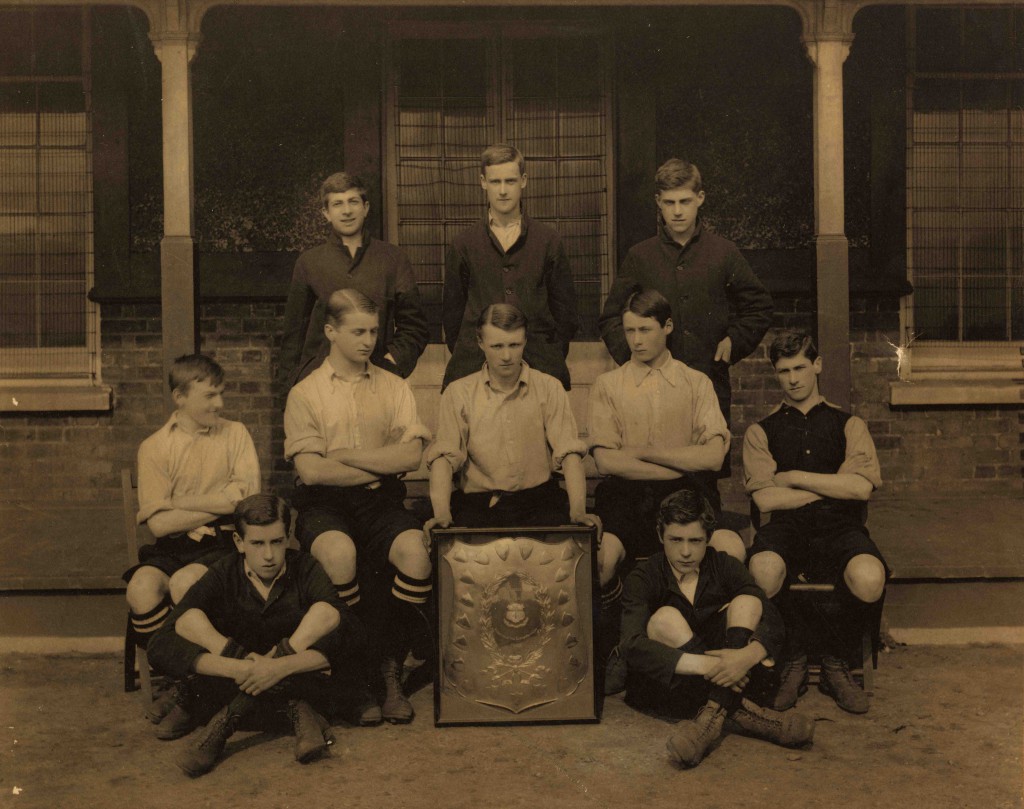John Wyndham Hamilton McCulloch
John was the only son of John Exley McCulloch of Paddington. He was born in December 1894,and arrived up Ashburnham in 1909.
He took part in the debating society. A report in The Elizabethan, notes that “On Thursday, October 19, the House met to discuss the following motion, ‘That in the opinion of this House the advantages of a boarding school are exaggerated.’ÔǪ The Seconder (Mr J.W. McCulloch), dwelt upon the splendid discipline of home life; in a moment of confidence, he gave the Society a glimpse of himself seated over his books in a lonely attic, from which the ‘injusta noverca’ forbade him to stir”.
However, his primary interest at school was sports and his contemporaries said he was a “useful” player. He earned a pink in both Cricket and Football and, in 1913, he played cricket for Middlesex.
On the 4th November 1914, he enlisted as 2nd Lieutenant for the 8th (Service) Battalion Border Regiment, and became Lieutenant the following February. He was serving as a temporary Captain when he was wounded in Flanders on the 20th October 1915.
He died of his injuries at Bailleul the following day.

